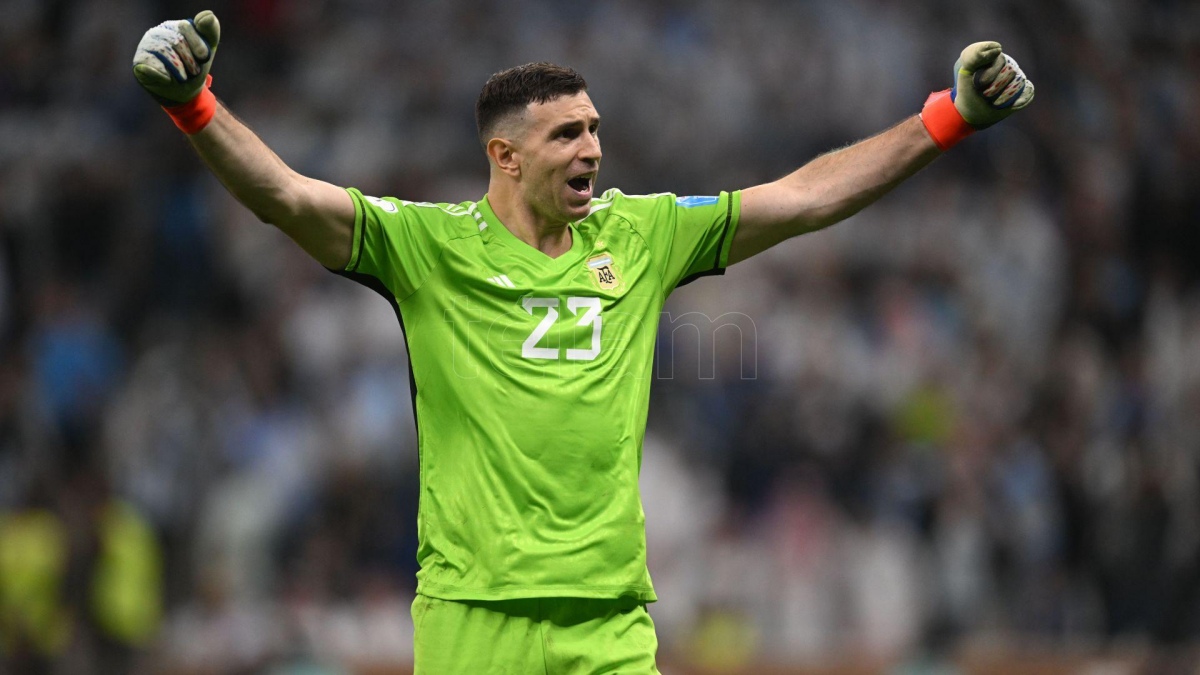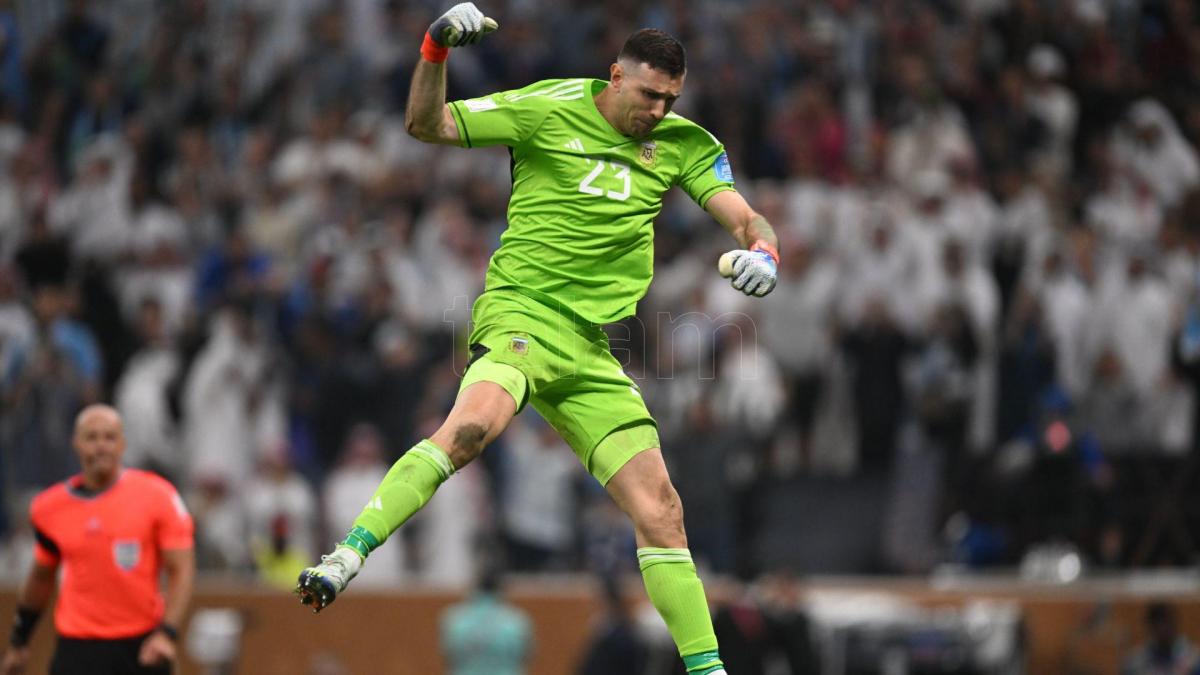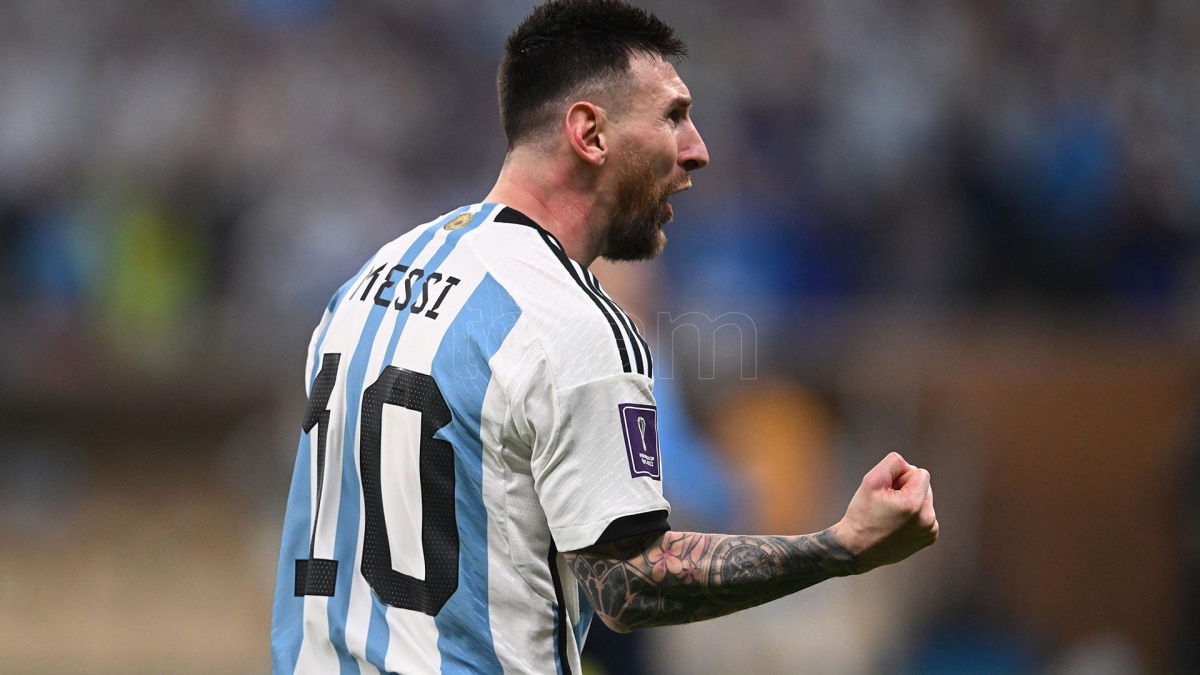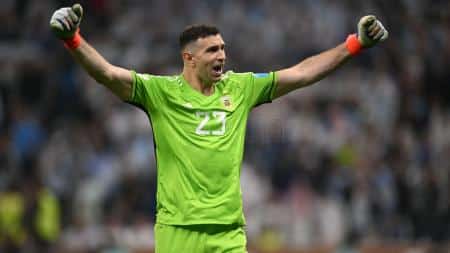 “I especially suffered a lot these three days, talking a lot with my psychologist,” said Dibu after the match against Saudi Arabia/ Photo: Fernando Gens, special envoy in Qatar.
“I especially suffered a lot these three days, talking a lot with my psychologist,” said Dibu after the match against Saudi Arabia/ Photo: Fernando Gens, special envoy in Qatar.
Muscle relaxation and visualization but also the image that the athlete acquires on the field, such as the challenging posture of the goalkeeper of the Emiliano ‘Dibu’ Martínez National Team with square shoulders, upturned chin and exuberant celebrations, are tools that help to manage stressful situations, indicated sports psychologists who analyzed the importance of this discipline in high competition.
“Psychological training is fundamental in high performance, working on how to improve concentration and motivation to give athletes ‘coping strategies’ that they use in stressful situations, such as kicking a penalty in the World Cup final,” he said. to Telam Raúl Barrios, adjunct professor in charge of the Department of Sports Psychology at the Faculty of Psychology of the University of Buenos Aires (UBA).
When the Argentine team lost in its debut in the World Cup in Qatar against Saudi Arabia, a rival that was not considered threatening, ‘Dibu’ told Public TV how he lived the days that followed that result and staged the importance of your psychologist.
“I especially suffered a lot these three days, talking a lot with my psychologist,” introduced the Aston Villa goalkeeper, adding: “That they kick me twice and score two goals, it’s really hard to swallow.”
In this regard, Barrios highlighted the techniques that high-performance athletes are taught to face high-pressure situations, and among them he mentioned “the visualization of what you want to achieve, progressive muscle relaxation, for which the first step is breathing because if you are tense in your muscles, it affects your motor skills, precision, technique”.
 “Grab the ball, close your eyes, you realize that it visualizes,” Barrios said about the Dibu / Photo: Fernando Gens, special envoy in Qatar.
“Grab the ball, close your eyes, you realize that it visualizes,” Barrios said about the Dibu / Photo: Fernando Gens, special envoy in Qatar.
“Self-dialogue also helps emotional regulation and psychological training allows you to focus attention on what is relevant, which is also useful for life in general,” said the graduate in Psychology, who is a professor of Physical Education and Sports psychologist of the Club San Lorenzo reserve.
To understand these appropriate techniques, Barrios used ‘Dibu’ and Lionel Messi as an example.
“Messi went through penalty situations so many times that he already knows what he has to do to score it, techniques that allow him to be relaxed, determined and put the ball where he wants, in addition to Qatar being his fifth World Cup, but you realize the body posture, the forehead is not wrinkled, he is not breathing heavily, he does not blink and you infer that he is calm,” he explained.
A similar image gave the goalkeeper of the Selection. “He grabs the ball, closes his eyes, you realize that he visualizes, all the ‘Dibu’ strategy in penalties is worked on, how he talks to his rivals, tries to get them out of focus, distract them, he tells them ‘I’m going to stop them. , I’m going to eat you,’ and that intimidates them. But to achieve this there is prior scouting,” added the specialist.
 Barrios: “Messi went through penalty situations so many times that he already knows what he has to do to score it” / Photo: Fernando Gens, special envoy in Qatar.
Barrios: “Messi went through penalty situations so many times that he already knows what he has to do to score it” / Photo: Fernando Gens, special envoy in Qatar.
Barrios, who was in charge of the Argentine rowing team for several years, maintained that soccer is a sport of collective action in which “the individual hierarchy is what will make the difference and has to be put at the service of a scheme of the game; that is why group cohesion is very important”.
However, he stressed that in elite athletes “with equal technical and physical conditions, the difference lies in who arrives better psychologically prepared.”
Another factor that specialists focus on due to its influence on sports performance is the feeding.
“Sports nutrition is the fifth factor of performance and post-match recovery, something key, in addition to the family environment that is part of the invisible training,” described Barrios, for whom the coach of the National Team Lionel Scaloni “handled the situations well family, they were helpful and productive.
Refering to sexualitystressed that if the players “are in a couple, in a stable relationship, there is no problem with them having sex the night before the game, because in some cases it helps them regulate anxiety.”
“There is no problem with them having sex the night before the game, in some cases it helps them regulate anxiety”Raúl Barrios
“It is very different if you go to a party, a caravan, or orgies or drink alcohol excessively, not that,” he said.
Laura Spaccarotella, sports psychologist from the UBA, health coach and member of the Mental Health and Sports Chapter of the Association of Argentine Psychiatrists (APSA)agreed with his colleague and assured that psychological treatment “is a preparation that must be started thinking in the long term.”
“What we do is psychological preparation, we establish criteria and health promotion in a comprehensive line, my priority is mental and psychophysical health, because one factor impacts the other and the social environment also influences,” he stressed in dialogue with Télam .
Spaccarotella was in charge of the psychological preparation of the Argentine Handball team, La Garra, who qualified for the first and only time at the Rio de Janeiro Olympic Games in 2016.
“I emphasize working on invisible training, it has to do with good nutrition, rest, restful sleep, good relationships with their environment, the context of the boys and girls must be taken into account,” he said.
“I emphasize working on invisible training, it has to do with good nutrition, rest, restful sleep, good relations with their environment, the context of the boys and girls must be taken into account” Laura Spaccarotella
Like Barrios, the psychologist remarked that the tools used for situations of stress or pressure are “visualization techniques, breathing control, goal setting”, although she clarified that “you cannot generalize and there are players who They need other resources.”
In this sense, he stressed the importance of having “a space to talk about these vicissitudes and lighten physical or emotional burdens.”
Regarding the attitude of the ‘Dibu’ and the language of intimidation towards the opponents, Spaccarotella warned that “it has to do with the personality of each player”.
“The issue is attitude, one teaches the athlete the importance of their image, how one puts on that shirt, neat, showing identity for their own team, body attitude, like appearing on a playing field,” he said.
In the case of the “Scaloneta” goalkeeper, he highlighted his body attitude with upright shoulders and upturned chin, demonstrating security and confidence; With that he plays with an advantage over his rival.”
“The ways of showing their happiness and celebrating (the saves) in an exacerbated way before a good play have to do with showing confidence, which also decreases that of the rival, while their own increases,” he concluded.


